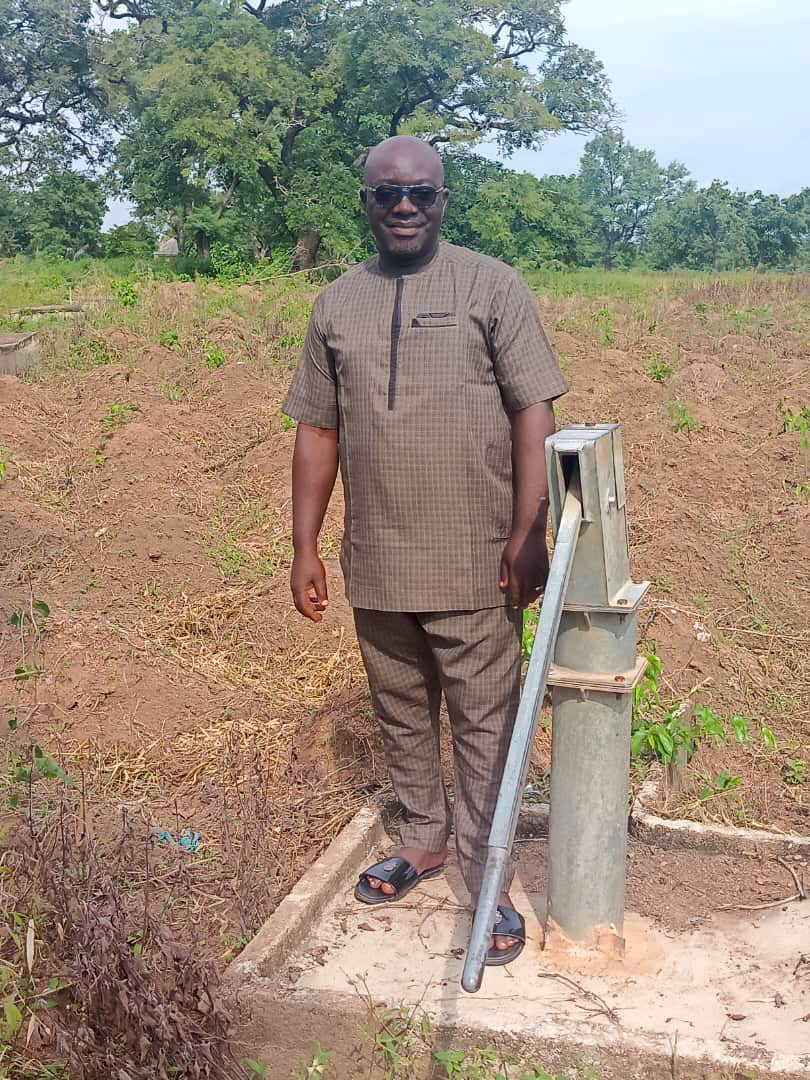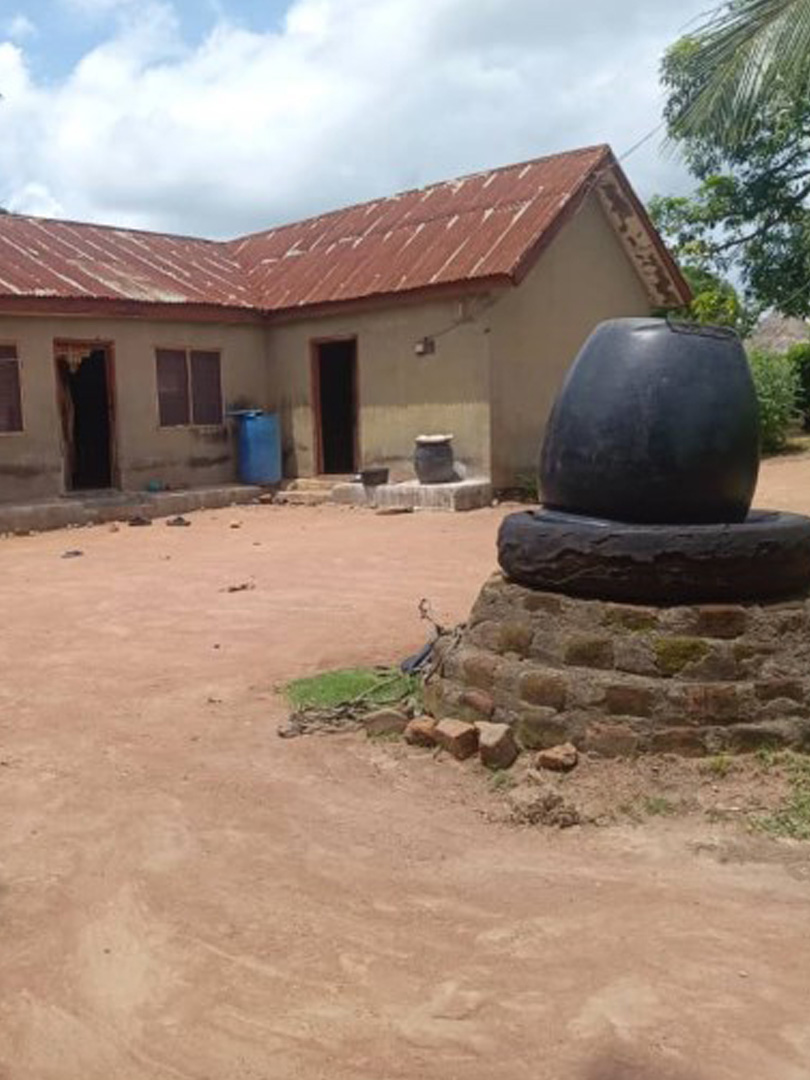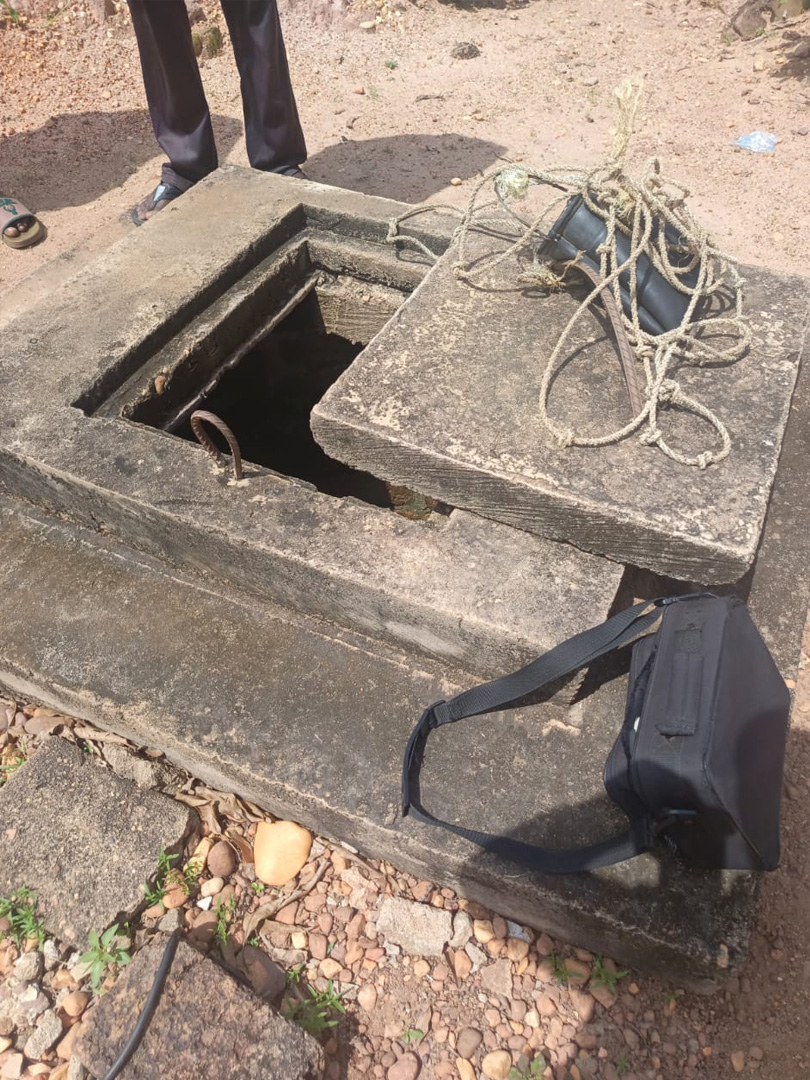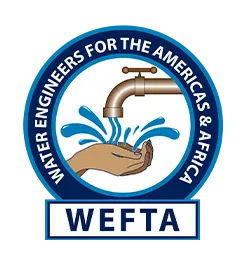
Katsina Ala: Ikurav Tiev and Kpanenge Water Supply Projects
$118,700 NEEDED TO COMPLETE THIS PROJECT
DONATE TODAY!
Total Project Cost: $182,700
Project Location: Katsina-Ala Area, Benue State, Nigeria
Project & Program Background
The Ikurav Tiev and Kpanenge Water Supply Projects were introduced to WEFTA by local partners working in rural, underserved communities in Nigeria’s Middle Belt region. These two villages, located in the Katsina-Ala Area of Benue State, lack access to reliable and safe water supply systems. In collaboration with local technical partners, WEFTA has developed a scope of work to establish sustainable water infrastructure in both villages, enabling residents to gain access to clean and safe drinking water.
These projects represent an urgent response to the chronic water insecurity faced by the residents of Ikurav Tiev and Kpanenge. The lack of consistent potable water in these areas leads to a wide range of health, social, and economic challenges, particularly for women and children who bear the responsibility of sourcing water from distant, unreliable, and frequently contaminated sources. Through these projects, WEFTA aims to provide the infrastructure and community support needed to create lasting improvements in health, hygiene, and daily living conditions.
Community Background
Ikurav Tiev is a rural village located in the southeastern part of Benue State, where most residents are subsistence farmers and petty traders. The community currently depends on seasonal streams, shallow wells, and rainwater collection for water. These sources are not only unreliable but are frequently contaminated, especially during the dry season when demand increases, and availability drops. Inadequate water access places pressure on every aspect of community life, from food preparation and hygiene to childcare and health.
Kpanenge, another village in the Katsina-Ala Area, faces similar struggles. The available water sources are inconsistent and often polluted. Most households do not have access to even basic sanitation facilities, and the few hand-dug wells in the area are unable to meet the daily needs of the growing population. This has led to an increase in waterborne illnesses, particularly among children and the elderly, and negatively affects school attendance and economic productivity.
Water, Sanitation, and Hygiene (WASH) Concerns
The lack of access to clean, safe water and basic sanitation infrastructure is a critical concern for both Ikurav Tiev and Kpanenge. Residents often resort to unsafe water sources that expose them to diseases such as cholera, typhoid, and diarrhea. With limited or non-existent sanitation services, open defecation is widespread, perpetuating the contamination cycle and increasing the risk of outbreaks. In both communities, the situation has reached a point where improved WASH infrastructure is no longer a matter of convenience but a matter of survival.
Proposed Projects
The proposed project will provide each village with a complete and sustainable water supply system. For both Ikurav Tiev and Kpanenge, this includes conducting a surface geophysical resistivity survey to determine appropriate borehole depth, followed by the drilling of a deep borehole estimated at approximately 100 to 110 meters. Each borehole will be fitted with a Grundfos SQFlex 2.5-2 solar-powered submersible pump, along with all necessary original components and a high-quality HDPE riser pipe system.
Water will be pumped into elevated tank stands designed to hold two 3,000-liter polyethylene storage tanks. From these tanks, water will be distributed through a dedicated fetching bay equipped with five stand taps to serve residents efficiently and hygienically. To enhance security and sustainability, each facility will be enclosed by a chain-link fence and include a roofed control room to house the solar power and pump system. Additional surface improvements such as lighting and gravel surfacing will ensure safe and sanitary access to the water points. Construction of these systems is scheduled to be completed within eight weeks of project initiation.
Sustainability Considerations
Long-term sustainability is central to the design and implementation of these water systems. The use of solar-powered submersible pumps eliminates dependence on costly and polluting diesel generators, reducing ongoing operational expenses and environmental impact. Protective fencing and purpose-built control rooms reduce the risk of vandalism or misuse, helping the communities manage their water systems more effectively. The chosen materials and technologies are selected for their durability and minimal maintenance requirements. Most importantly, local technicians and community members will be trained in the operation and maintenance of the systems, fostering a sense of ownership and empowering the community to ensure long-term functionality.
The new water systems will have wide-reaching benefits, improving health outcomes, increasing school attendance, reducing the time burden of water collection, and enabling greater economic productivity. Improved WASH access will especially benefit women and children, who often spend hours each day sourcing water and are most vulnerable to the consequences of inadequate sanitation.
Community Engagement
The residents of Ikurav Tiev and Kpanenge, in partnership with local authorities and community leaders, are committed to contributing labor, locally available materials, and support throughout the construction process. This local contribution, which represents a sizable portion of the project’s execution effort, reinforces community ownership and supports long-term sustainability valued at $37,000 or 20% of the total project cost. WEFTA circuit riders and volunteers will continue to visit both communities in the years following construction to provide technical follow-up, ensure system integrity, and offer further training and troubleshooting assistance where needed.
WEFTA Volunteers
WEFTA’s team of engineers and technical volunteers will provide donated time and expertise throughout the project’s lifecycle, from planning and system design to implementation oversight and post-construction evaluation. This contribution of in-kind engineering services represents approximately $27,000 or 15% of the total project cost and is a cornerstone of WEFTA’s approach to delivering high-impact, community-based water solutions.
For additional information about this project, please contact us.
Donate to the Katsina Ala Water Supply Projects



Poor water and sanitation conditions contribute to high rates of morbidity and mortality among children under the age of five in Nigeria.
Over 40 million Nigerians lack accessto safe water.
Our commitment is to the long-term success
of the projects we’re involved with and it doesn’t stop when construction is complete.
